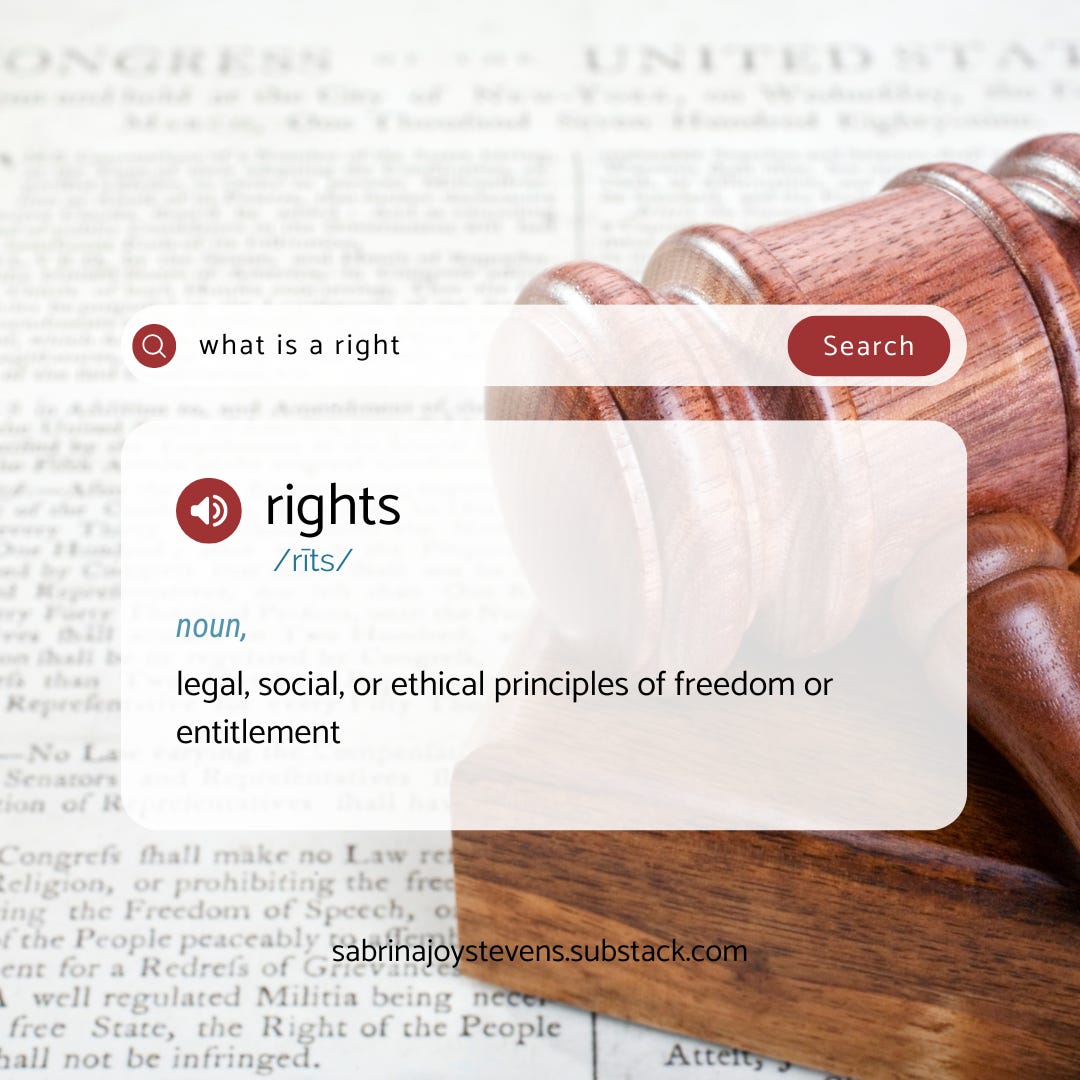The United States was founded upon the principle that all humans are endowed by our Creator with certain unalienable rights, among them life, liberty, and the pursuit of happiness. Liberty-sustaining governments exist to secure these rights — not necessarily to make us happy or provide us with everything we need, but simply to avoid directly infringing upon our rights, and to create a context in which we can freely live and pursue what we find fulfilling. America is certainly not perfect, but by breaking with the traditions of most human societies and ending slavery, extending the vote to citizens over age 18 regardless of race or sex, and enumerating our civil rights in various domains, past generations brought us significantly closer to a more perfect union.
But more recent generations — and here, I’m talking primarily to my fellow Millennials and Gen Z, though many of our Gen X and Boomer bosses have let us bully you into acquiescing to this — seem to have forgotten the difference between a right and a preference. (And how convenient! If we hadn’t, simply respecting and enjoying the liberties previous generations already won for us would put a lot of advocacy organizations and campaigns out of business.)
To be sure, most people who do this mean very well; we want(ed) to create a society where everyone feels included and accepted on their own terms. But the moment we cross the boundary of another person’s rights to honor someone’s preferences, we inevitably trigger hostility and conflict. We also create precedents that empower government officials to encroach upon all of our rights, which is exactly what most of us are trying to avoid.
Reminder: one person’s rights end where another person’s rights begin. If the thing someone is claiming as a “right” infringes on someone else’s right to life*, liberty, or property, they’re not advocating for their rights. They’re trying to deceive or coerce people into suspending someone else’s actual rights to accommodate their preferences. One of the surest ways to tell whether you are dealing with an earnest civil/human rights organization (or activist) and one caught up in Groupthink™ is to examine their demands and discern whether they’re defending people’s actual rights or a politicized group’s preferences.
For example, the freedom to participate in a meritocratic hiring process, and be accepted or rejected based on your qualifications rather than your identity, is a right. Wanting to achieve a certain demographic mix, and enforcing that preference by creating an evaluation process that favors people of specific races or backgrounds, violates the disfavored groups’ civil rights.
The freedom to dress and change your body to look how you want, without experiencing violence or discrimination for flouting sex stereotypes, is a right. Wanting other people to use biologically-inaccurate pronouns, and enforcing that preference by threatening their jobs or access to education, violates the free speech and conscience rights of people who don’t believe in gender ideology.
I could list a lot of other examples, but I’m hoping you get the idea by now. Though many folks have the best of intentions when they confuse rights and preferences, violating other people’s rights to achieve a preferred outcome only deepens the inter-group hostility people are trying to eradicate in their quest for things like “diversity” and “inclusion.” Not every cultural change can or should be enforced by law or policy. Question people and organizations who insist that they must.
*Yes, as a former abortion supporter and patient, applying this test to my own beliefs made me change my mind about abortion. If fundamental human rights like the right to life don’t apply unconditionally to all human beings, then all of us are at risk of such violations for capricious reasons. Laws that protect life in the womb are completely compatible with genuine health care for pregnant moms experiencing genuine emergencies, and it’s critical that we relearn the difference between health care and violence.




